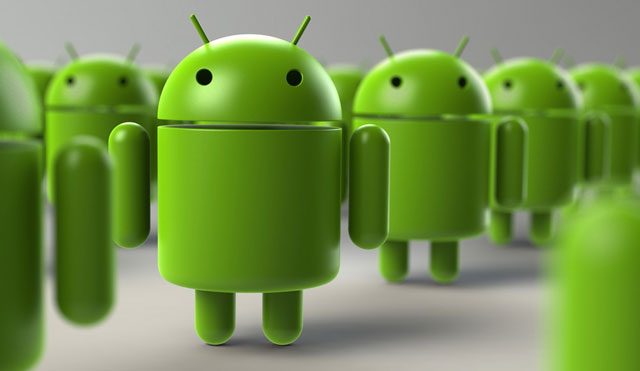
Android already powers most smartphones on Earth. Now Google is placing its mobile operating system right inside cars, a bid to cement its core service in the auto industry as more technology sweeps in.
On Monday, ahead of its I/O mobile developers conference, Google is showing off its next step in automotive software: an Android version of touchscreen car consoles and infotainment systems.
It will host popular applications, like Google Maps and Spotify, but also control car features like seat positioning and temperature. The new system also embeds the Google Assistant — the company’s voice control service, for searching on the go, asking for directions and making phone calls — in cars for the first time.
At I/O, Google will show off live demonstrations of the operating system running on the Audi A8 and Volvo V90 SUVs. Patrick Brady, a vice president of engineering for Android, said the system will make its way to Audi and Volvo’s entire fleets, along with other manufacturers. Google showed a concept of the software running on a Chrysler vehicle earlier this year.
This isn’t Google’s first stab at software for cars. In 2014, the tech giant introduced Android Auto, a system that lets people project content from their Android smartphones to their car’s screen. Brady said Android Auto now runs on 300 car models.
The new system plunges deeper, taking over the underlying software on the car. A driver doesn’t need to plug in an Android phone to run it. It also adds some features, like 3D mapping and satellite images, that Android Auto lacks. Brady said this fusion of apps and controls inside a car is necessary. “Where cars are going, everything is integrated into one display,” he said. “We think the future is a much more seamless, integrated system.”
Other software companies have pitched a similar system. BlackBerry’s QNX division powers the systems inside of more than 50m cars currently on the road, including models from Ford and Mercedes-Benz. Samsung Electronics spent US$8bn for Harman International, a leading supplier of in-car entertainment services. And some car companies, like Toyota, have invested in their own features, highlighting manufacturers’ concerns with ceding a critical consumer experience to tech companies.
Apple, which offers the CarPlay product that’s similar in practice to Android Auto, is also working on its own car operating system to power its self-driving software. Brady said that Apple’s CarPlay could run on top of cars with the embedded Android system.
While Google isn’t getting a sales cut from its new system, the company has an interest in keeping Apple and Amazon.com, which has reached agreements with car makers for its own digital assistant, from capturing the vehicle software market. Brady said Google was not taking any critical vehicle tracking information with the new system.
A preview of an Android-based infotainment system running on a Volvo shows software with three main windows for users: a central panel for playing music, making calls and navigating; another with a grid of core car functions; and a third that lists installed Android apps. A button on the steering wheel and a voice command can activate the Google Assistant.
Google wouldn’t say when the first models will hit the streets. And it’s operating system didn’t look completely finished. For example, a drop-down menu for quickly accessing settings was not yet active in a demonstration.

Each Android software car partner will have the ability to customise the controls, interface and applications preloaded into the operating system, the company said. For now, Brady said Google is not pre-installing a slate of its own apps, as it does with Android phones. Android for the car might eventually extend to dashboard items like speedometers and backseat screens.
Yet Google executives said the software will not reach to instruments critical to car safety — it’s keeping YouTube off the screen, for instance, given the risk to distracting drivers.
The new car feature also hints at Google’s long-term ambitions to spread its artificial intelligence service to every corner of consumers’ lives. For example, a user in a compatible car could ask the Assistant to turn on the lights at home before arriving, Brady said. That assumes car owners have compatible smart home hardware.
Google said it’s working on bringing the voice assistant to Android Auto. Apple’s CarPlay system is already compatible with its voice assistant Siri for sending text messages and navigation, but unlike Android’s new system, Apple’s cannot control car functions like temperature. — (c) 2017 Bloomberg LP




